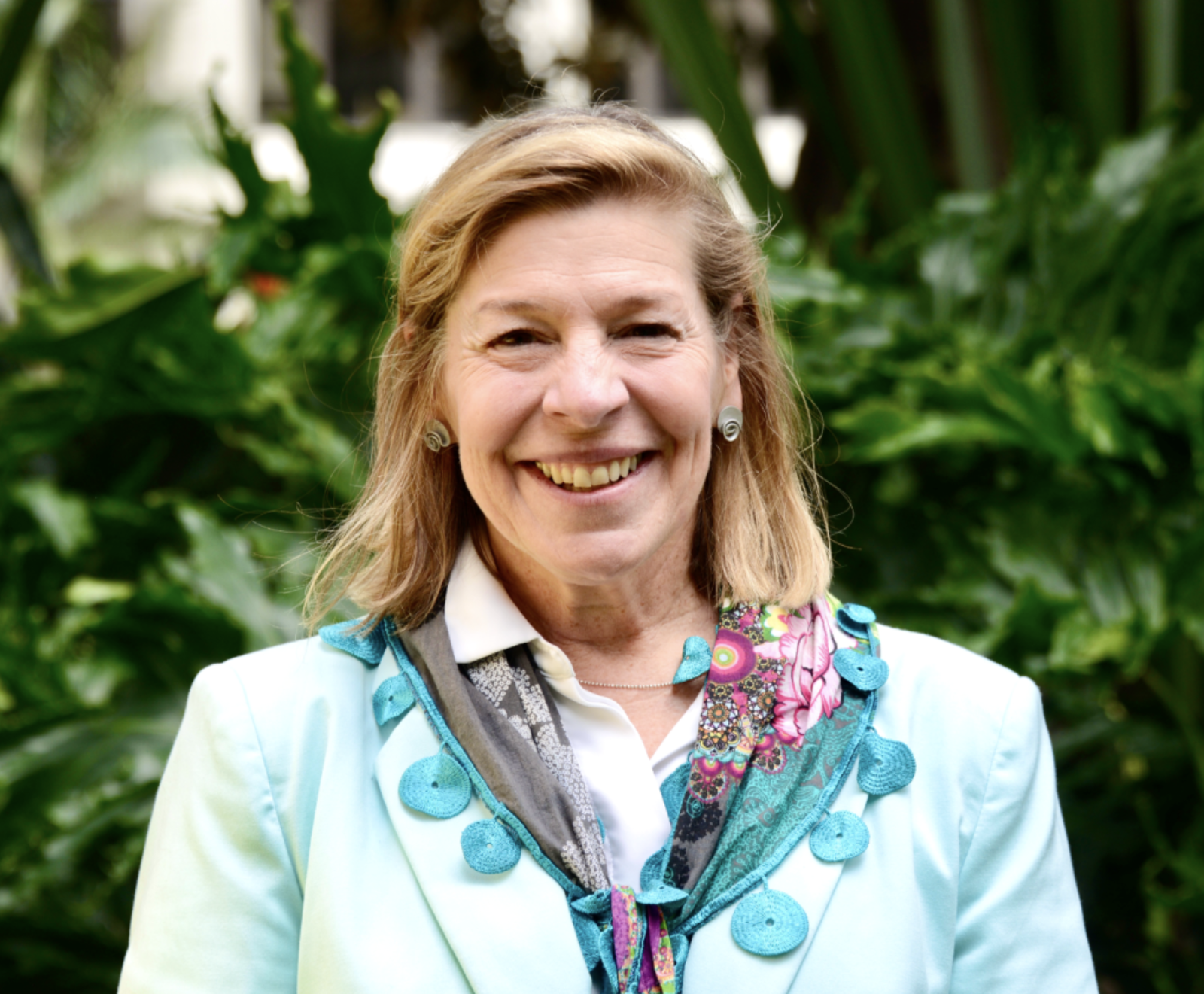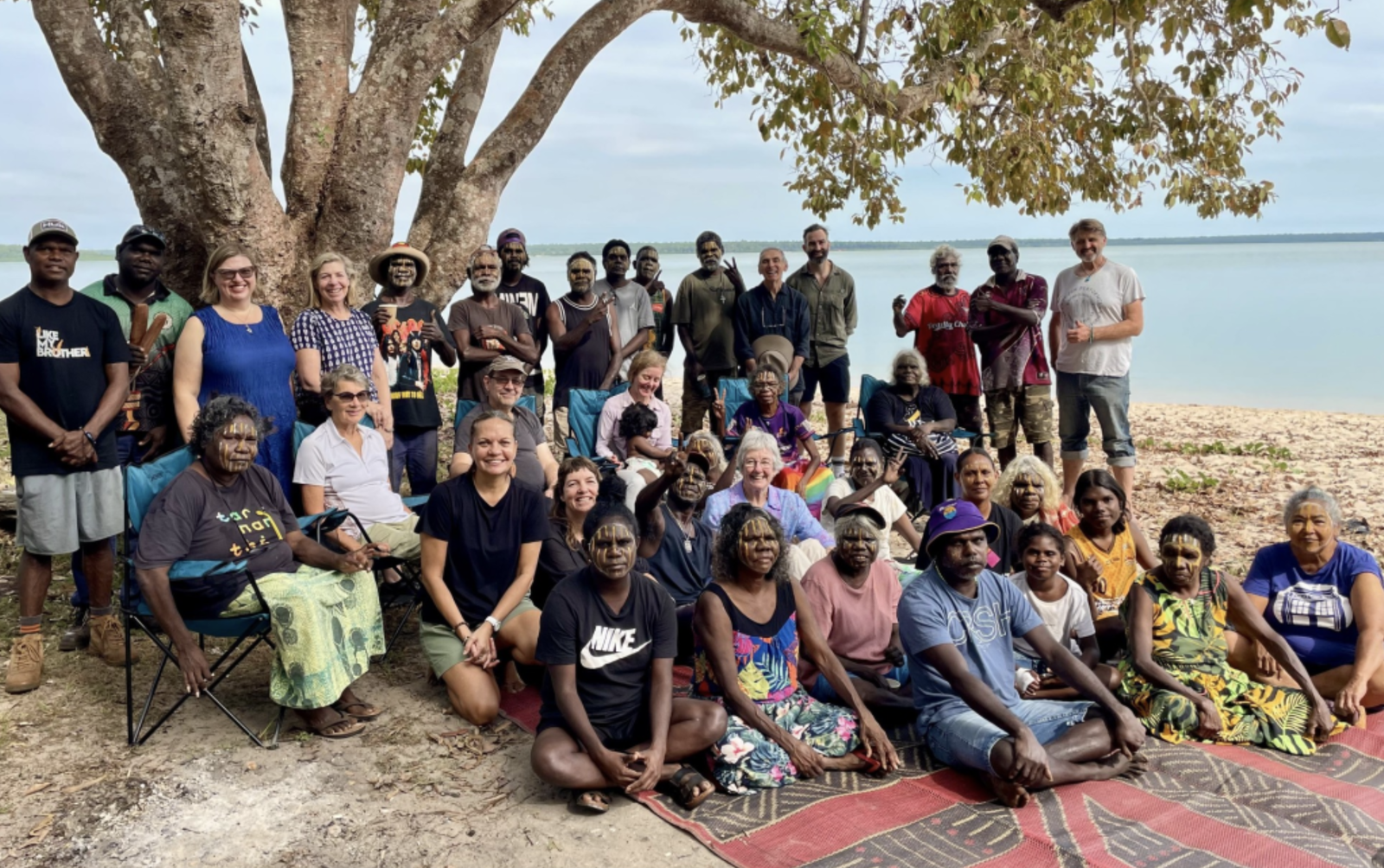· 8 min read
Blair Palese is Director of Philanthropy at Ethinvest and founder of the Climate Capital Forum, a network of investors, decarbonising businesses, climate finance experts and philanthropists advocating for Australia to lead in the global net zero economy. She is also co-founder/contributor at Climate & Capital Media, a global online outlet covering emerging climate opportunities.
Blair founded and was CEO of 350.org Australia for ten years from 2009 and has worked for companies, government programs and not-for profits in the climate and environment space, including the Google X Moonshot team, C40 cities for climate action, The Body Shop with founder Anita Roddick and as communication director for Greenpeace International and Greenpeace USA.

Praveen Gupta: Australia is one of the world’s most vulnerable countries to climate change impacts, facing ever-worsening droughts, bushfires, flooding, and rising sea levels.
Blair Palese: More than most nations in the world, experts say Australia is highly vulnerable to climate change impacts – drought, flooding, extreme weather and fire. This means we need to reduce our emissions and move rapidly away from polluting fossil fuels to clean alternatives not only for our climate, economy and energy security but to try to mitigate the incredible costs of these growing impacts. The insurance costs from the Black Summer bushfires in 2019-20 for instance affected 80% of Australia’s population and caused A$2.4 billion (US$1.5 billion) of insured loss according to Moody’s. The Insurance Council of Australia says the insured losses from two extreme weather events, including deadly flooding in the New South Wales mid-coast, have already reached A$1.5 billion this year. Addressing climate change makes sense not only for a liveable planet in the future but for a vulnerable Australia.
PG: Congratulations for rejecting climate denial! How do you believe will the current government utilize its mandate to intensify the climate action it has initiated?
BP: It certainly was a win – especially when polls just weeks before the election suggested a very close race. We are fortunate that, despite the incredible power of the fossil fuel sector in Australia, the re-elected Labor government “gets” the opportunities of becoming what it likes to call “A Renewable Energy Superpower.” That means not only continuing to move to renewable energy within Australia – we are averaging an impressive 46% in our grid and occasionally reaching up to 75% renewables according to our energy regulator. It also means ramping up the development of net zero products such as green iron ore and steel, to countries that need to buy net zero in to meet their targets — China, Korea and Japan.
Albanese’s Labor government committed A$22.7 billion to a range of Future Made in Australia initiatives and incentives in 2024 – something my Climate Capital Forum advocated strongly for over three years. This included incentives for everything from Production Tax Credits and renewable energy hubs to support for green hydrogen and critical mineral mining development (full list below*). One of his party’s most important steps was announcing a home battery incentive scheme of A$2.3 billion for Australian homeowners, particularly the one-in-three that already have solar power and want to back that up with batteries. Voters sent a strong message that they back this and want more.
Our country’s real challenge, and where Labor leadership is sorely lacking, is developing a strategy to wean our export market away from coal and gas and toward the net zero products…
It’s a vast improvement on the previous Coalition (Liberals and Nations, both conservative) government, that proved itself to be irrelevant in the last election by promoting highly expensive and hugely unlikely nuclear power from a cold start — largely seen as a ruse for extending gas and coal use. It was a key reason the Coalition suffered one of its biggest election setbacks in Australian history.
Our country’s real challenge, and where Labor leadership is sorely lacking, is developing a strategy to wean our export market away from coal and gas and toward the net zero products above. Labor is still approving new gas and coal projects such as its recent approval of Woodside’s North West Shelf gas project to 2070. This and the 30 odd fossil fuel approvals Labor’s made since its 2022 electron win contradict the IEA’s no new fossil fuel projects if we are to meet our global 1.5C emissions targets mandate. There is much more work to do here and we are up against all too powerful fossil fuel and mining political power keen to prevent that from happening.
The economic stakes are high. It’s time for the Labor government, with a mandate that might possibly give them six or more years in power, to pick a side and that side is net zero, not fossil fuels. Investors, businesses, importers and innovators need certainty and the government needs to provide it.
PG: Do you believe Australia is on track to become the world’s first climate superpower? Do you see efforts in place to increase renewable energy supply to 82% by 2030 and 95% by 2035; net-zero steel and iron ore; emergence as the global champion of exporting net zero?
BP: It’s a real possibility BUT that export transition challenge is a big challenge along with our lacking a startup, innovation culture that would allow us to move fast enough to take a seat in the growing net zero global market. My network, the Climate Capital Forum, and associations like the Investors Group on Climate Change are working to encourage the Australian government to learn from initiatives like those in California, the US’s IRA, Europe’s carbon price and renewable energy incentives and other successful climate financing approaches to put them in place fast and get moving. With Trump’s America leaving the field, there’s a huge gas Australia could fill if we are able to kick-start the innovation and use the incredible renewable energy and critical mineral resources we have – many would say, the envy of the world.
PG: How inclined are the money pipelines (banks, insurers, fund managers) to fine-tune with your climate aspirations?
BP: We really need the federal government to continue upping its financial and policy support to send a clear message to private investors here and overseas that this is where Australia is going. With the outcome of the election, we have three and a half years – maybe more – to lock in our efforts to become that Renewable Energy Superpower the government likes to talk about. Our investors, banks, funds managers and insurers are conservative by nature. They will need policy certainty and funding from the government and its programs like the Clean Energy Finance Corporation (CEFC) and Australian Renewable Energy Agency (ARENA) to help investors to see the opportunity and crowd in private funding to make this work.
PG: Given your climate vulnerabilities, how receptive are you to the Indigenous intelligence and practices?
BP: Sadly our First Nations communities have often been left behind in the effort to move to clean renewables but organisations like Original Power and its First Nations Clean Energy Network are changing that for the better. The First Nations Clean Energy Network is supporting more than 20 Aboriginal communities around the country to fund, install, own and run their own solar power systems and get off of polluting and expensive diesel. Their work really shows how it can be done well to ensure everyone benefits from the transition.
PG: How was your recent trip to Tiwi Islands and the interaction with the elders?
BP: It was such a privilege to be invited by the Elders of the Tiwi Island community of Pirlangimpi who have been trying to stop Santos’ Barossa offshore gas development just off their coastline. Sadly and unbelievably, they only found out about the development plans long after they were underway. There was no consultation. In 2022 Tiwi Elders took the offshore gas regulator to court, on the basis they had not been properly consulted and won in a landmark ruling that has had broader implications across environmental rights advocacy. In 2023, they lodged human rights grievances against Australia’s banks for their continued financing of fossil fuel extractors, and a delegation of elders recently travelled to Japan and South Korea to meet with key financial backers to argue that the community opposes the project on cultural and environmental grounds.
It’s a David and Goliath battle and an example of the centuries-old tactic of cashed-up corporates going into first nations communities, driving a wedge …
Sadly, they lost a key court case in 2024 against Santos on cultural heritage grounds. The company plans up to seven gas projects, one as close to 50 kms from the Tiwi coast, for export to Asia, and the community getting zero benefit and all of the impact. Santos exports 80% of its Australian-generated gas for profit offshore, pays extremely low income and resource taxes and can afford multi-billion-dollar US law firm, formerly a Trump firm, Quinn Emanuel. It’s a David and Goliath battle and an example of the centuries-old tactic of cashed-up corporates going into first nations communities, driving a wedge – usually by offering cash to those least impacted to support the project to get what they want. It not destroys the environment but often the first nations communities as well. Additional legal action is likely and the battle isn’t over yet. Labor’s leadership will be called into question here. For more information, see Jubilee Australia, who are working with the Tiwis to support their effort to stop Santos.

illuminem Voices is a democratic space presenting the thoughts and opinions of leading Sustainability & Energy writers, their opinions do not necessarily represent those of illuminem.






